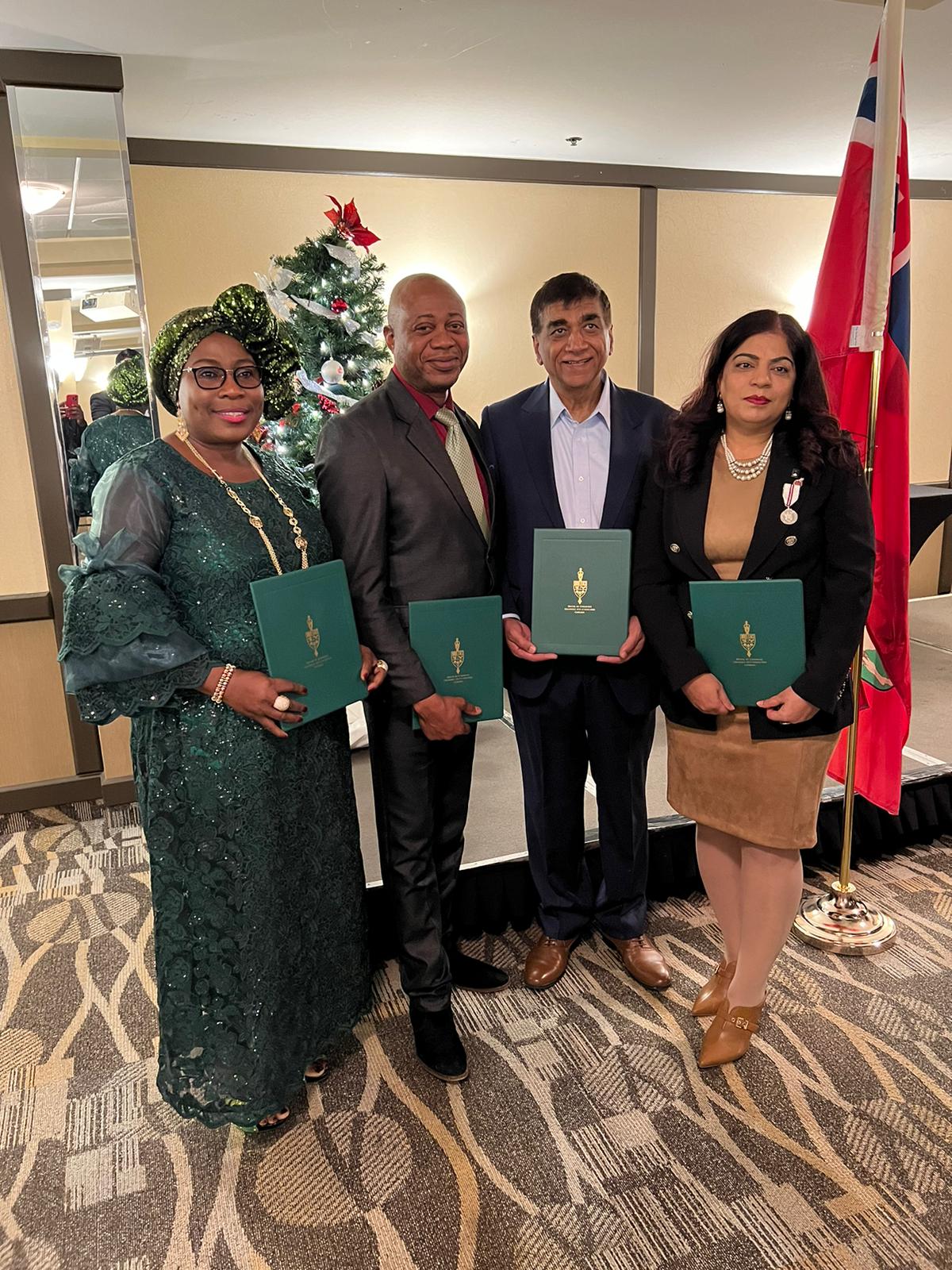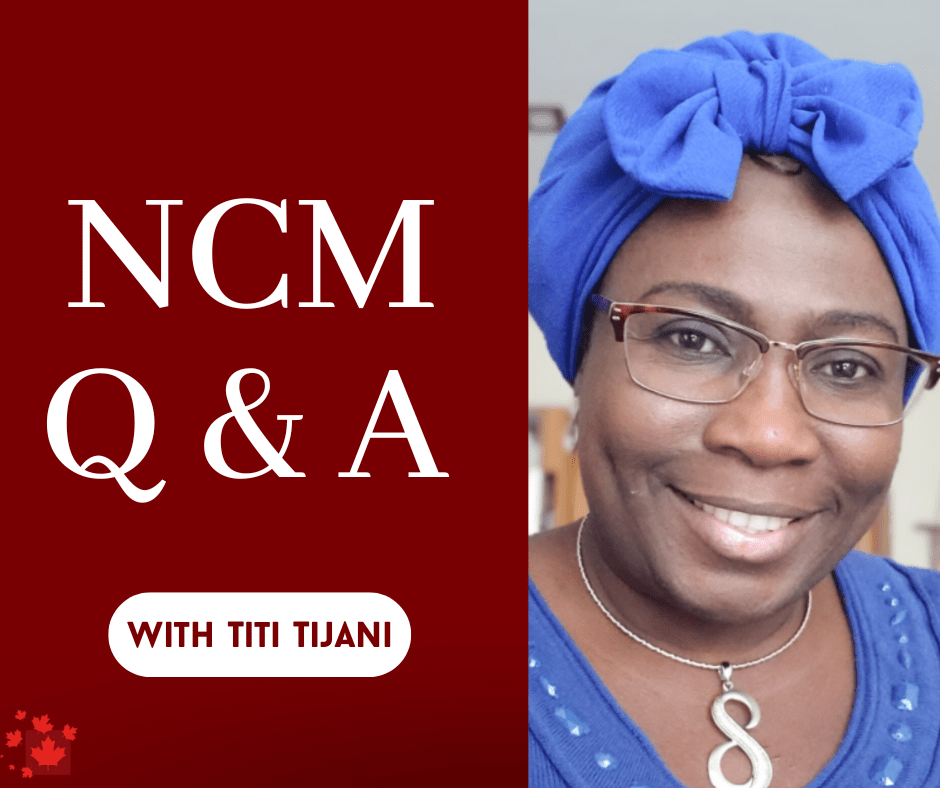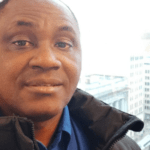Titi Tijani is a leading activist, community organizer and president of the African Communities of Manitoba Incorporated, the umbrella body of all African associations in Manitoba. She spoke to New Canadian Media reporter Emmanuel Nwaneri about her dream to see every immigrant who arrives in the country working in the profession they trained for in their home countries.
The following Q&A interview has been edited and condensed for clarity.
What was your experience in finding a job when you arrived in Canada?
I did not come to Canada as a student. I came to join my husband. It was after I got here, I faced the challenge of finding work in my field and to recognize the credentials that I brought from Nigeria; that was going nowhere.
I am a graduate of Education from the University of Ilorin in Nigeria. After my credentials were assessed [in Canada], I was assessed as a Child Care Worker 1, which was not even for a school; it only allowed me to work elsewhere which was not my passion. I really wanted to work in a school which was my passion.
That was what led me to go back to school, because I soon realized there was no other means of finding a job in my career. This actually only happened after eight years of being here in Canada – I wasn’t able to go back to school right away. There were challenges in that aspect also.
I was asked to go do GED, which is like going back to Grade 10. There were many friends of mine whose university degrees were also not accepted. They were told they had to have the credentials from high school; to have your GED first before they could be accepted into universities here.
So many who were here before me had to go through that path. I didn’t feel that I needed to do that, so I worked for a while and then when I decided to go back to school, I challenged my Department of Education.
I had to do it this way, but I did pledge to myself that other people coming after me should not have to go through this struggle in order for them to be able to work in their fields.
How did you do it?
It was a real challenge at the time. But with dedication and passion, and having my orientation and my goal of being able to have the degree to get me the job that I wanted, I did it.
You know, all these challenges and experiences laid the foundation for me getting into advocacy work and helping others. We started seeing people who had practised medicine in their country for 20 years and then they come here they are doing ‘survival’ jobs— driving taxis, washing dishes, things like that, and so we came together. That was how we moved to start working with the government in establishing the Office of Fair Assessments, which was created as a result of our advocacy.

How did the African Communities of Manitoba Inc. (ACOMI) begin?
I have always been a community-minded person who brings people together, especially being so far away from home. I’ve always felt that whatever I’m feeling, other people are feeling the same and so we shouldn’t die in misery. We shouldn’t suffer alone.
I’ve always been the first to bring people together to reminisce about our experiences here, to share it, and then think of how we can overcome it. I started informally bringing together some of my friends from different organizations and communities. It was in 1997 that a group of people from four African countries came together.
We had been hearing about this event, Folkorama, and felt we could also share our cultures. A few years later we came together and decided to see where things are going; we felt we needed to do more than bring people together once a year.
That’s what led me and all of the others from those countries to band together and have one umbrella association. ACOMI is the organization for all of us.
Is ACOMI connected with other African associations in Canada?
Yes, we are reaching out. In Edmonton, there is the African Centre, which is an umbrella organization. There is also another one in Saskatchewan, African Communities Research Network, which we are reaching out to. We have all teamed up to form the African Communities of Western Canada to begin to advocate. We felt the need to come together because when we started advocating, we noticed that everything seems to begin and end in the East.
I attended one national meeting at the time and someone from the leadership actually said that he had no idea that there were Black people in Western Canada. I almost fell off my chair.
I’m sure you have had experiences, you have heard stories and; come across people who come here with very high qualifications, but are then forced to become taxi drivers or security guards. Do you think there is institutional racism in Canada?
I don’t think one can deny that there is institutional racism in Canada. It is not only institutional but systemic racism. Rules are made by certain people. The people that were here before us, the people that are in power made the rules to suit themselves and so, without us being at the table, how can we contribute to those rules? That is why it is called systemic racism. With different cultures comes understanding.
Starting from my experience with education. I came here for a better life and I already had the preparation, the requirements, the education to have a better life.
When you fill out immigration forms to come here, you’re being assessed based on your educational qualifications. So those with no education or very low education [unless they come through the refugee system] do not have room to come to Canada under the immigration system.
Everyone knows these are the criteria; if you have a Bachelor’s degree, there are certain points you get. If you have a higher degree, you get better points which increases your chance of being approved to come to Canada.
Of course, this raises your hopes very high that when you get here, you will be able to work in the field which you have spent many years working toward.
But when you get here, you then hit a wall because of the system, because you are different. The gatekeepers of those systems look at you and say ‘No, it’s not for you; the rules are meant for certain people and you don’t fit that criteria.’
It starts when you apply for jobs. When they see your name — if your name is not Anglo-Saxon or French, you are out. That also creates issues for us because then we have to anglicize our names in order to be able to get through the first gate in the application process. If you are able to scale this first barrier and your resume says you have what it takes, and you somehow get to the interview, you’ll see they’re looking in the room, searching for somebody else but instead they see you there. You know you have failed that interview.
That is systemic racism – the pre-determination that the gate is only open for certain people and not for others. So those are discriminations built into the system. Of course, the system was already written, the rules are already written and people are implementing those rules.
If you are able to get into that workplace, you then have to deal with micro-aggressions. You now have to deal with the cultural aspects —people not willing to open the door for other cultures to come in. You now have to fit into a different culture whether you like it or not. All of these cause stress for us.
There are barriers everywhere you turn as an immigrant here, and you have to be strong to be able to overcome those barriers. You have to be dedicated and also have some resources, money to go back to school. Otherwise, when people come here as seasoned professionals everywhere they go here, there are barriers and there are full stops.
So they have no choice — I mean they have to live. They have to take care of their families. That is why people do those jobs like taxi drivers. We call them survival jobs.
If we didn’t start advocating to the government to start credential recognition, you realize that those survival jobs end up becoming peoples’ lifelong jobs and people are not able to go back to their careers.
But there is awareness now in the larger society. Canada is waking up and voicing to each other and acknowledging that racism does exist. There is willingness to do something about it, to educate everyone, and to be mindful of it and create policies and start to be able to see one another as human beings and not just ‘us and them’.
How did the Office of the Fairness Commissioner come about?
We [ACOMI] took it upon ourselves to call on the leadership of the province, our Premier at the time. We had a meeting with him for a one-point agenda. It was to tell him that educated immigrants are doing menial jobs despite the fact that they have their certificates. Why was this?
That is how we started our discussions. He would bring different Ministers to address certain things and we would also bring affected individuals to those meetings, so they could see it was not just hearsay. We would bring them to the Premier and say, ‘make your case’. And the Premier would see that this man has all these qualifications, but this is what he’s doing — is that fair?
It took us three years before the Office of the Fairness Commissioner was created and it started working with the professional licensing bodies because they’re the ones not allowing people to practise their profession; they are the gatekeepers. The government, along with us, started working with them to open the gates to create bridging programs so that internationally educated immigrants would be able to do bridging programs and then try to work in their fields.
It is the foundation that we laid and the work that we did that allows people to come here now and be able to entrench themselves properly into society and achieve their goals in very short years. That was not achievable prior to 2008.
Every time I see an immigrant – regardless of where they come from – practising their profession, that gives me the best joy ever. I took the negativity that was my experience, worked on it and turned it into a positive for people, and cleared the path for those coming behind.
Credit to our executive board at that time who put all their efforts into it that led to the creation of the Office of the Fairness Commissioner, which many immigrants are now benefiting from. That is the biggest joy for me today.
Emmanuel Nwaneri is a journalist with about 27 years of writing, travel and journalism experience in Nigeria, South Africa and Australia. He moved to Johannesburg in South Africa where he spent 10 years as a writer, journalism tutor and commentator. His time in South Africa afforded him the chance to observe the fast-changing dynamics of a country popularly-known as “a rainbow nation." He relocated to Winnipeg with his family in 2018 where he has since found interest in the Customer Service industry. He has published Once Upon A Woman and is working on a second work of fiction.





